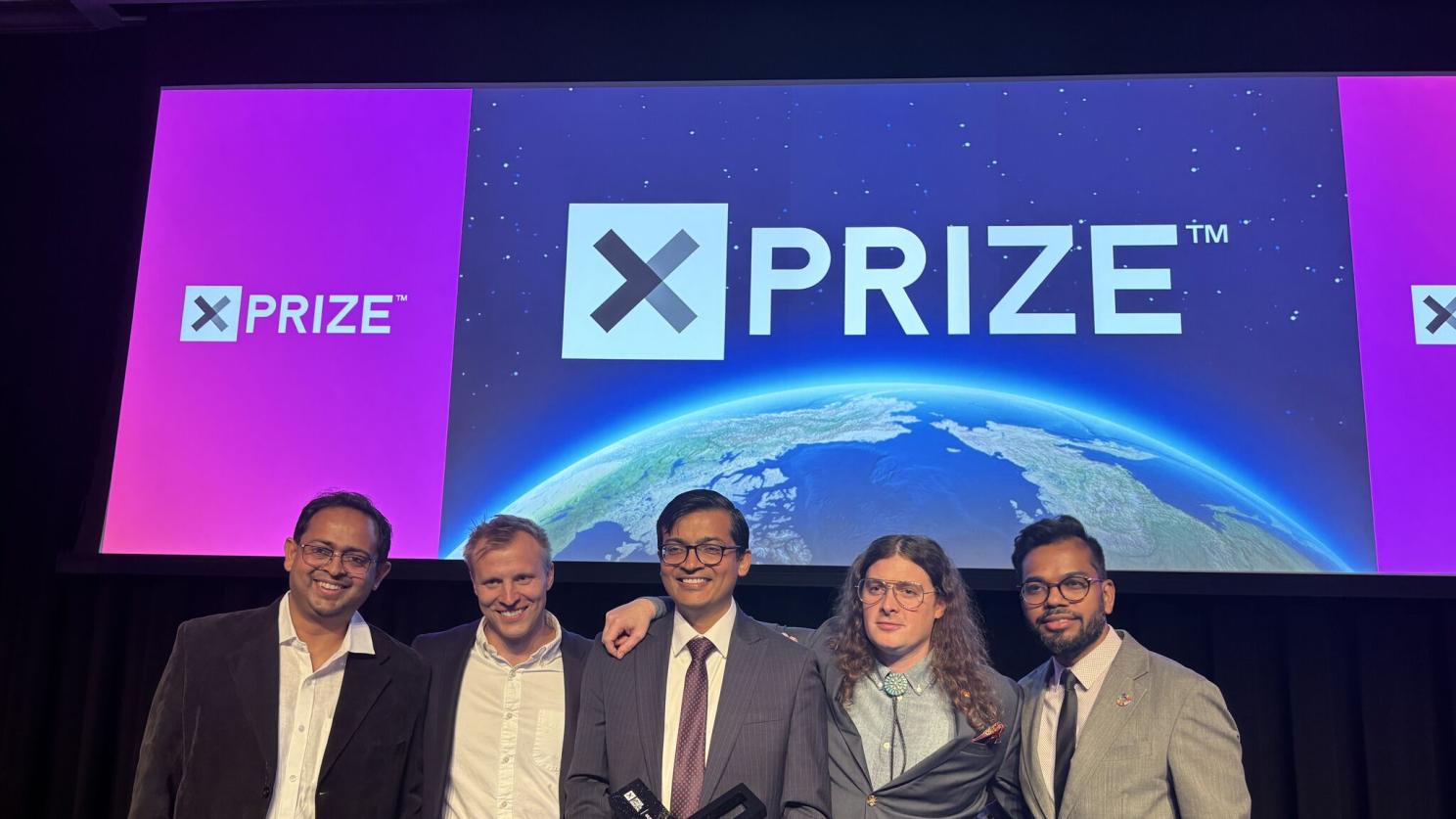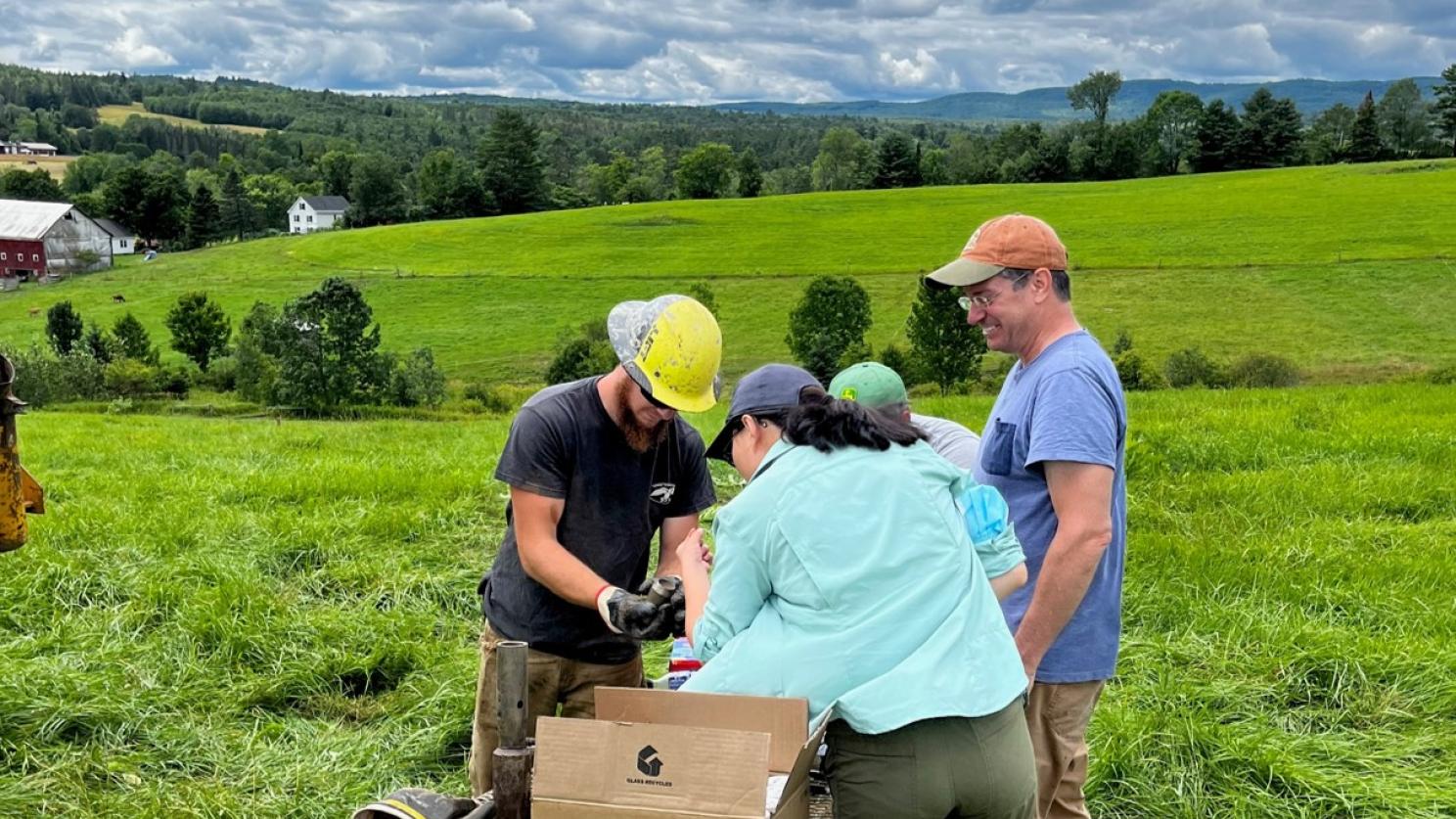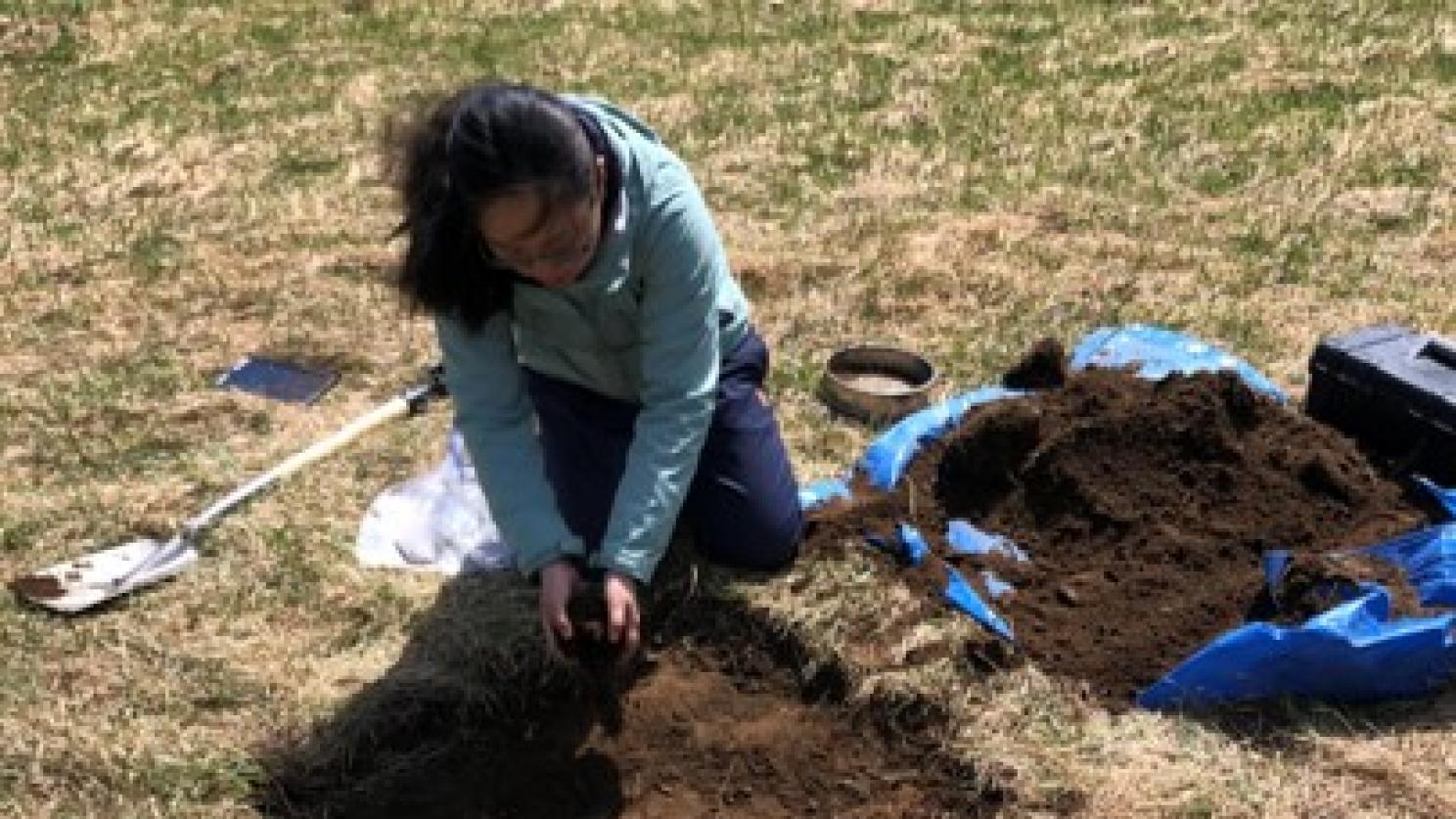Groundbreaking News – Mati Carbon wins XPRIZE leveraging soil as a solution
On Earth Day, April 22, 2025, Mati Carbon won the $50 million grand prize in the XPRIZE Carbon Removal competition. This was an important milestone for the Yale Center for Natural Carbon Capture (YCNCC) - a critical research partner who helped steer Mati’s early validation of enhanced rock weathering (ERW) with smallholder farmers in India.
"FedEx was instrumental in establishing the YCNCC, recognizing that Yale’s world-class scientific research would help power and equip innovators to develop, test, and grow the vital solutions needed to remove carbon from the atmosphere,” said Karen Ellis, Chief Sustainability Officer and VP of Environmental Affairs at FedEx.
"Mati’s recognition by XPRIZE provides further evidence that enhanced rock weathering is a promising technology that could deliver for both planet and communities at scale".

What makes ERW a promising carbon capture option?
Healthy soil is increasingly recognized as a superhero in the fight against climate change. It functions as a critical carbon sink, naturally absorbing and storing more carbon dioxide (CO2) from the atmosphere than it releases. By applying specific types of rock—like basalt—to agricultural lands, Mati and others are showing how to sequester CO2 while restoring degraded soils and improving crop yields.

What makes ERW attractive is not just its CO2 removal potential, but also its multiple co-benefits. The process adds beneficial nutrients to the soil, such as macro-nutrients like silicon, calcium, and magnesium, and micro-nutrients like manganese and zinc. Studies have shown early applications of basalt can lead to increased crop yields, anywhere from 10% to 40% depending on initial soil degradation. It also helps raise soil pH, reduce reliance on chemical fertilizers, and increase water retention capacity.
Why is the XPRIZE an important milestone for the Center?
In 2021, FedEx helped establish YCNCC with a transformative $100 million commitment. The XPRIZE demonstrates how the Center’s science is quickly fueling a pipeline of groundbreaking research to capitalize on what scientists understand about the Earth’s natural capability to cycle and capture CO2.
Mati's win validates the importance of focusing on permanent carbon dioxide removal and creating pathways that bring benefits to communities most affected by climate change. The significant progress of the Center in a short period of time provides momentum for finding the reliable, scalable solutions needed by FedEx and the aviation industry to neutralize emissions that remain after deploying new operational technologies.
What is Mati Carbon’s goal?
Mati Carbon's goal is ambitious: to remove 100 million tonnes of CO2 by 2040. Their specific focus is to enable climate resilience for smallholder farmers in the Global South. They use basalt-based ERW specifically in smallholder rice paddy farms to remove atmospheric CO2, add key nutrients, and restore degraded soils.
How will communities benefit from improved soils and natural carbon capture?
Another promising aspect of ERW is the potential for new revenue streams for agricultural landowners through the sale of carbon credits for each ton of CO2 captured. The bicarbonate ions formed during ERW can percolate into groundwater, streams, rivers, and eventually reach the ocean, where the carbon can be stored durably in a stable form for more than 10,000 years.
Yale and global stakeholders are committed to gathering sound, proven data in field studies to ensure the integrity of these carbon credits before scaling.

While studies like those at Yale continue to refine understanding and measurement, the progress being made by organizations like Mati Carbon—fueled by the research at YCNCC—shows immense promise for leveraging the power of soil in the fight against climate change.
